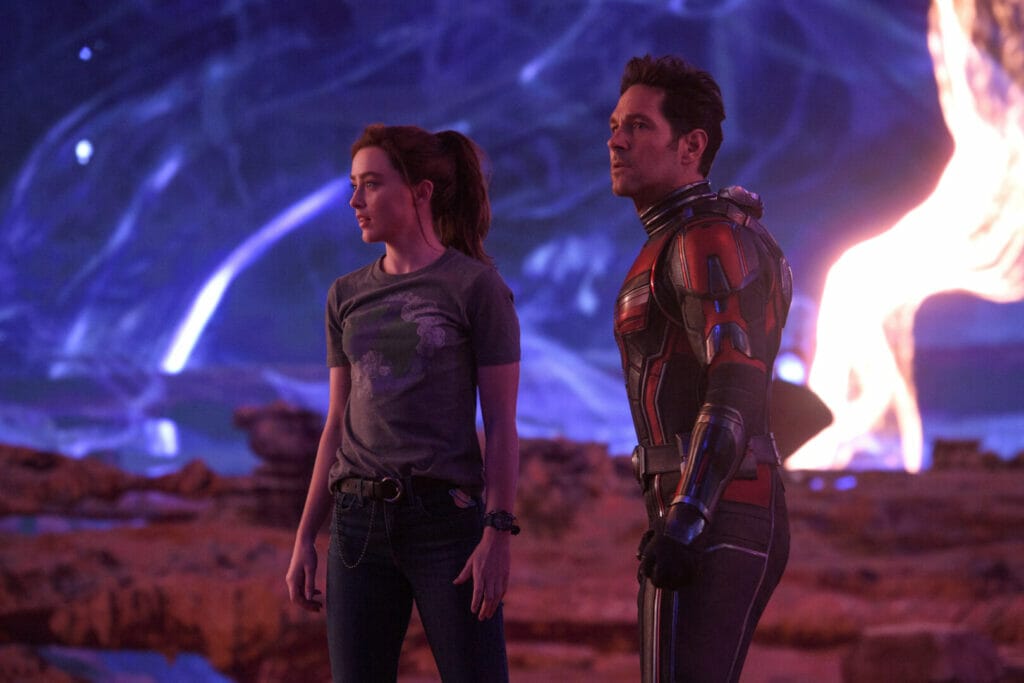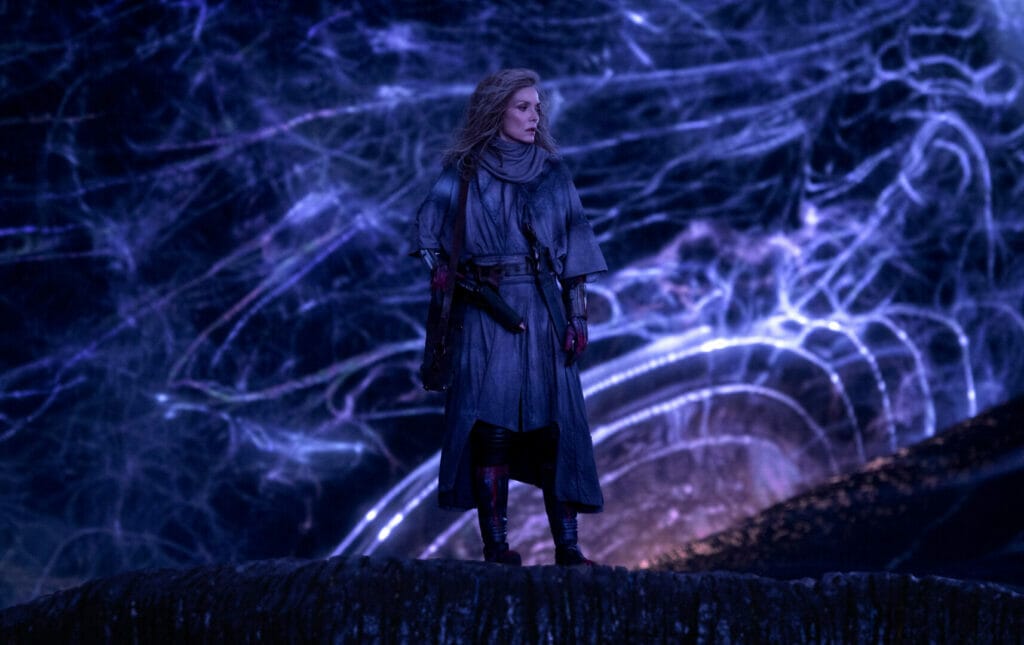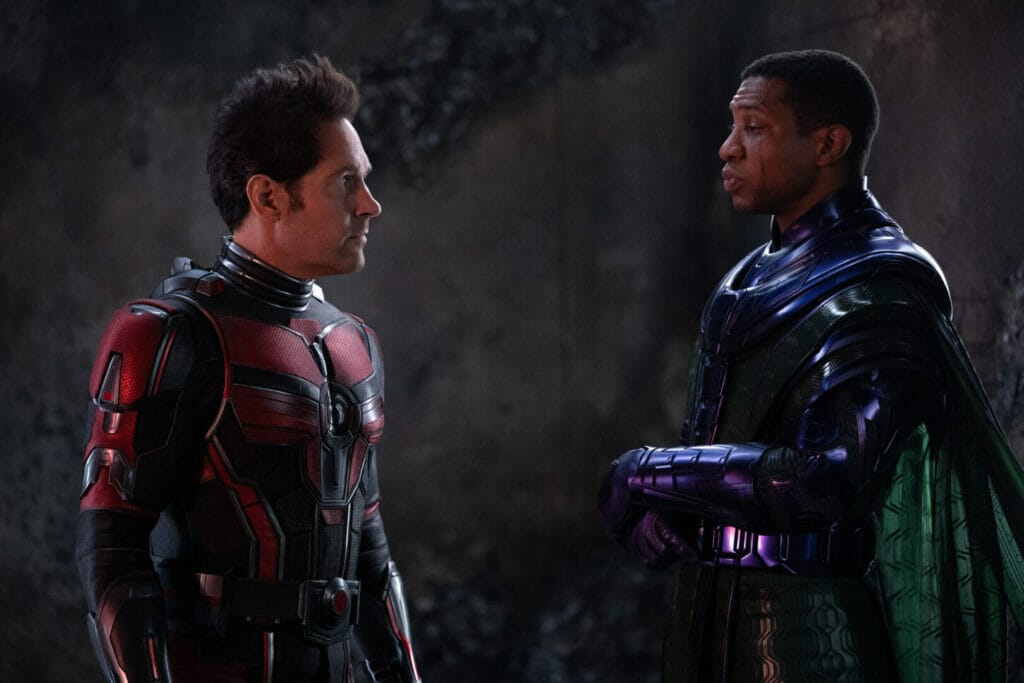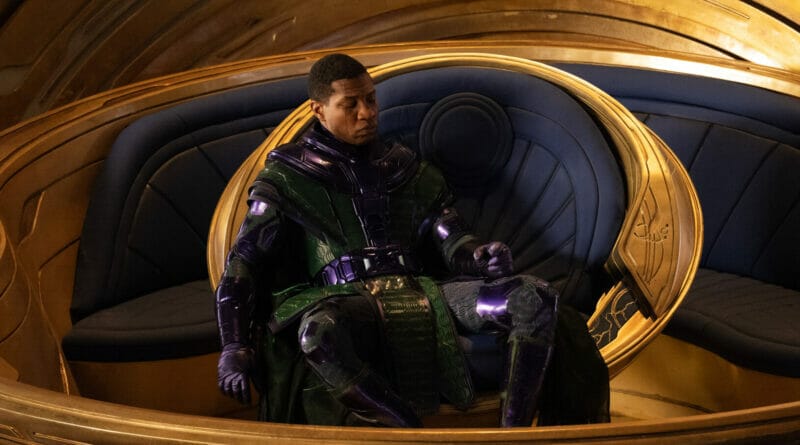Time is a concept that’s being explored as of late in a lot of the MCU and the larger collection of superhero movies, such as The Flash. As we venture into larger-than-ever narratives that include time travel and multiverse shenanigans, it opens the world into bigger and grander adventures. But for me, it also gives room to explore the existential dread that could come with these concepts of time, much like how Dr. Manhattan from Watchmen (2009) perceives time, you’d think ideas such as those would be explored further into these modern mythological stories. I’m sad to say that the ideas and perhaps the thesis of time presented in Ant-Man and The Wasp: Quantumania is a clunky first step. It never develops into anything meaningful or consequential for our heroes, nor the story at large, at least for the moment.
Ant-Man and The Wasp: Quantumania is the third film in the Ant-Man trilogy, which builds up from the events of Avengers: Endgame, Ant-Man and The Wasp, and perhaps a bit of Loki, but that last one is not necessary to follow the story of this film. Scott Lang (Paul Rudd) is hailed as a hero for saving the world, has a book and he’s reconnected with his family and especially his daughter, Cassie (Kathryn Newton). Cassie has been tinkering with mapping out the Quantum Realm in order to further understand what lies down there. A freak accident causes Scott Lang, Hope van Dyne (Evangeline Lilly), Hank Pym (Michael Douglas), and Janet Van Dyne (Michelle Pfeiffer) to end up in the Quantum Realm. As they try to find a way out, a big secret Janet has been keeping from everyone will be revealed, her connection to the menacing Kang the Conqueror (Jonathan Majors).
The first act where we get reintroduced to Scott Lang, and how everything is post-Endgame seems fine as a way to reintroduce us to the main cast and the character conflicts that will follow as the film progresses. I didn’t find it slow or dragging as some of my other peers did. It was just a means to introduce the relationship Scott and Cassie have now that Cassie has grown up and the mystery that surrounds Janet’s time in the Quantum Realm. The main character conflict that Scott has is that now that he saved the world, it seems like he hasn’t done much superhero-ing since.

Cassie is there to remind him why she’s proud of him and looks up to him, to the degree that she’s already becoming a split image of her father, by doing mischievous deeds that land her in jail, but contrary to her father, Cassie ends up in jail for helping protesters and generally doing well-meaning things. So by ending up in the Quantum Realm and having to go up against Kang, serves as an opportunity for Scott to become that hero his daughter always looked up to. It’s a serviceable character arc that mostly functions, even if it peters off as the film progresses.
The second act is the instruction of the large Quantum Realm, filled with kooky and eerie creatures, including a kinda funny gelatinous character by the name of Veb, played by the criminally underrated David Dastmalchian. Because all these creatures speak different languages, the film established that heroes must drink in order to be able to comprehend them and be able to communicate with them. In a script that for the most part is very lazily written, and trust me I’ll explain why very soon, this was actually a more reasonable excuse to make all these wacky Quantum Realm characters speak English than the even lazier reason as to why the Na’vi suddenly spoke English in Avatar: The Way of Water. The look of the Quantum Realm looks fine, albeit a little overwhelming with all the overdesign that’s on display. I will concede that the CGI is better handled than the last few Marvel flicks, looking at you Thor: Love & Thunder.
By this time, however, the clunky script starts to become overbearing and groan-inducing. The narrative becomes very predictable and the dialogue especially turns into a frustrating experience. The amount of times characters ask Janet Van Dyne to explain what happened to her during her time in the Quantum Realm and her constant spouting that she has no time to explain, because of reasons, becomes infuriating for a while. It seemed that the screenwriter Jeff Loveness didn’t know how to escape these trappings or couldn’t think of something better than what’s on display, which is surprising considering this is the same man who wrote the Emmy award-winning Rick and Morty episode “The Vat of Acid Episode”.

This doesn’t just stop with Janet either, the amount of times people say vague pronouns to give an artificial mystery to the main antagonist of the film seems almost silly, considering how prevalent he is in the marketing of the film. And you might argue that the marketing shouldn’t guide the way the film presents certain twists and turns, but even as its own thing, it just screams very lousy writing on behalf of the screenwriter who couldn’t think of other ways to write dialogue that didn’t feel trite and amateurish. During the middle of act two, we finally have the character sit down and hear Janet’s long-winded exposition dump of who Kang is and how he ended up in the Quantum Realm. This is admittedly where the story finally gets interesting, but it mostly has to do with the way Jonathan Majors channeled this irritation of Kang the Conqueror.
Jonathan Majors as the main antagonist of this film and clearly the next few MCU phases was an excellent casting choice. Majors has little to chew on with this script and this characterization of Kang, but the sheer potential on display is astounding. Majors is able to sell any line given to him, with the menace and gravitas comparable only to Josh Brolin’s portrayal of Thanos. Sadly the character motivations Kang has are paper thin. The promotion bolstered this film as ‘The Beginning of a New Dynasty’ referring to Kang and how he’ll factor into the larger MCU narrative, but the film offers very little of this notion, only small hints here and there, but as the basis to introduce this character, it was rather lackluster.
This is sad because I was very intrigued to explore the reasons why this antagonist is a threat to the Multiverse the MCU is building towards, but it seems like Kang will only get his fully fleshed-out introduction by the time Avengers: The Kang Dynasty rolls around, just like they did with Thanos, only showing him briefly here and there and fully fleshing out his motivations when Avengers: Infinity War rolled around. With that said, I’m still excited by the range Jonathan Majors provides here and I only hope that other filmmakers utilize his incredible acting chops in subsequent Kang appearances.

The element of time, which is talked about but not explored deeply enough, was potentially the most frustrating aspect I had with this whole movie. Time, or rather the loss of time is something a lot of these characters are grappling with. From Janet Van Dyne’s loss of time by staying 30 years stuck in the Quantum Realm, to Kang’s time lost by being stuck and exiled from the other Kangs, and finally to Scott having lost time while his daughter grew. The idea of time and wanting to get the time they lost back was right there in the subtext of the narrative, but it was never touched upon or explored in any meaningful and emotional way.
Kang gave Janet the opportunity of recovering that lost time with Hope if she helped him, which makes sense. So why is it then that when Kang asks Scott for help he doesn’t give the time he lost away from his daughter back to him as a means to get Ant-man to do what he wanted? The idea was right there, but it escaped everyone who worked on this film. It could have given a stronger emotional core to Scott’s frustration with missing out on a lot of Cassie’s adolescence, given the fact that the first two Ant-man movies revolve around Scott and Cassie’s relationship.
The third act becomes the classical MCU CGI-filled final battle, which is the same as many others you’ve seen before. The resolution seemed rather abrupt, but the film seemingly hints that there’s more to come, because of course there’s always more to come.
Ant-Man and The Wasp: Quantumania is a very mid-MCU movie. The story is by the numbers, the dialogue is incredibly clunky and it’s all held together by a strong showing on behalf of Jonathan Majors. The film gives us a peek of what’s to come, but I ask, why must we always look ahead into these movies instead of just being able to engage with what’s in front of us?
Ant-Man and The Wasp: Quantumania hits theaters this Friday!
Want to discuss things further? Hit us up on Twitter, Facebook, or Instagram. And for more film, gaming, anime, and TV news, trailers, and updates make sure to keep it locked right here at The Nerdy Basement. While you’re here, please consider supporting us on Patreon! It’s an easy way of supporting us so we can keep providing you with your Nerdy News!

